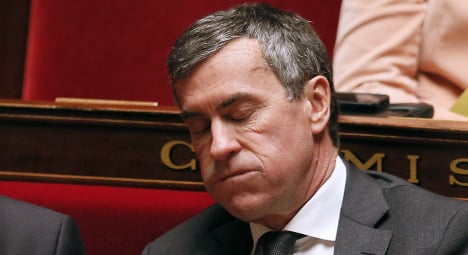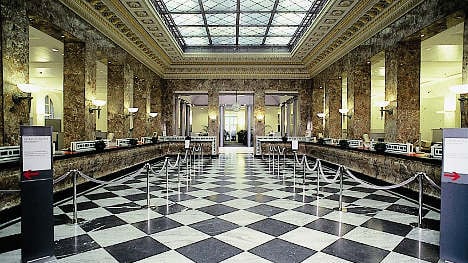The 63-year-old faces up to seven years in jail and €2million ($2.2 million) in fines if found guilty of stashing offshore his earnings from a lucrative hair-transplant business he ran with his now ex-wife.
The Cahuzac scandal was the first of a series that have tarnished the presidency of Francois Hollande, who had promised a squeaky clean government after succeeding Nicolas Sarkozy, the subject of several graft investigations, in May 2012.
A media scrum is expected to descend on the court for the start of the trial, even if an opening defence gambit may prompt a delay of several months.
The spectacular scandal saw Hollande initially backing Cahuzac's vehement denials after the Mediapart news website first broke the story in December 2012, posting a compromising audio recording.
Cahuzac – whose remit had included cracking down on tax fraud – promptly lodged a defamation suit against Mediapart.
But the trained surgeon, still protesting his innocence, resigned his post after a formal investigation was launched in March 2013.
Two weeks later, he dramatically confessed to having held the account with Swiss banking giant UBS and said he was “consumed by remorse”.
Cahuzac was immediately hounded by the media, telling a newspaper he had to move “every two days” to escape the glare.
The scandal prompted Hollande to order his ministers to disclose their personal wealth, a first in France, where personal finances are rarely discussed and the wealth of public officials had long been considered a private matter.
A 'family affair'
Prosecutors described the tax fraud as “determined” and “sophisticated” as well as a “family affair” including Cazuhac's now ex-wife Patricia Menard, a dermatologist who is a co-defendant in the case.
Also in the dock are their advisers, Swiss banker Francois Reyl and Dubai-based lawyer Philippe Houman.
The Reyl bank of Geneva, which in 2009 allegedly helped Cahuzac transfer funds to Singapore to avoid detection by French tax authorities, is also being tried.
The story of the fraud, carried out between 1992 and 2013, reads like a cross between a cheap airport novel and an international financial crime manual.
In one episode, Cahuzac, using the codename “Birdie”, allegedly received two cash payments of €10,000 each in the streets of Paris.
A “friend” first opened an account with UBS in 1992, then Cahuzac himself opened one in his own name in 1993. In 1998, all the funds were allegedly transferred to Reyl, totalling some €600,000 by 2009.
That was when Switzerland's hallowed tradition of banking secrecy began to fall apart.
Cahuzac then allegedly channelled the funds to Singapore, taking a labyrinthine route through a shell company registered in the Seychelles set up by Houman of Dubai.
Menard is alleged to have deposited cheques from British clients in a secret account with an Isle of Man bank, which press reports said held some €2.5 million. She then opened her own separate account in Switzerland, reportedly containing one million euros, as her marriage with Cahuzac began falling apart.
Even Cahuzac's mother played a role.
While she has not been charged, her bank accounts were allegedly used to launder some 200,000 euros worth of cheques written by the hair clinic's clients between 2003 and 2010.
The defence on Monday is expected to challenge the constitutionality of the case, arguing that Cahuzac has already settled his debts with the tax authorities and should not be tried twice over the same matter.
If France's highest court of appeals decides to refer the question to the constitutional court, the trial could be delayed. If not, it is scheduled to wrap up on February 18th.



 Please whitelist us to continue reading.
Please whitelist us to continue reading.
Member comments